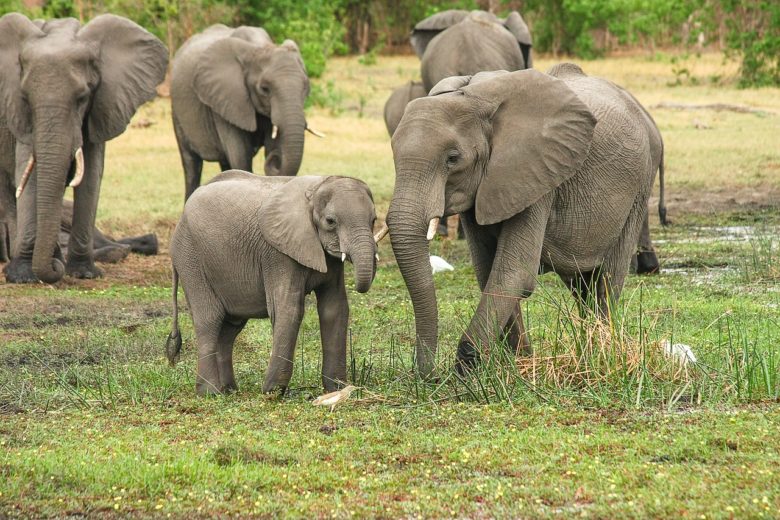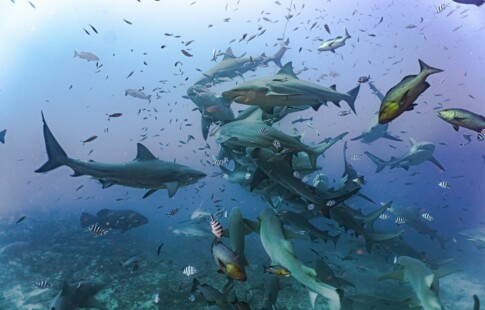
Why Are Elephants Important to the African Ecosystem?
We are reader-supported. When you buy through links on our site, we may earn affiliate commission.
When learning about any animal, it’s easy to focus on the creature’s bodily features, behaviors and habitat without stopping to think about how they influence their native ecosystems. Take the elephant, for example. It’s a gigantic creature that has captured the interest of people through the years. Observers appreciate their huge ears, smooth tusks and leathery skin. But why are elephants important to the African ecosystem? Here are five reasons.
Why Are Elephants Important?
1. Elephants Contribute to Plant and Tree Life Diversity
As animals eat fruit, they pass seeds through their digestive systems that promote the diversity of local trees. A study that focused on how far African elephants move those seeds as they eat fruits, travel and defecate found some seeds disperse more than 40 miles, especially when males search for mates.
This means elephants transport seeds further than any other land animal. Researchers say the movement is a big help in contributing to the variety and distribution of trees on the African savanna. In contrast, other creatures that live there may only move the seeds a couple thousand meters at most. Moreover, each elephant can pass thousands of seeds daily.
An investigation about African forest elephants also showed those creatures substantially aid the plant life in Central and Western Africa. Throughout their lives, they naturally participate in activities such as nutrient recycling and germination.
However, less than 100,000 forest elephants are alive today. Scientists believe if people focus on conserving that single species, they’ll have a much more significant effect because of the relationship those animals have with the plant species and their survival.
2. Elephants Create New Watering Holes During Drought Periods
When people wonder why elephants are essential, they should keep one of the Earth’s most crucial elements in mind: water. In emergency conditions, African elephants can go up to four days without water. When the precious liquid becomes overly scarce, they can use their tusks and trunks to dig for water in seemingly dry areas.
By doing so, elephants make new watering holes that not only they can use, but other creatures benefit from, too. As such, elephants in Africa actively help other animals from becoming dangerously parched by having difficulty locating sufficient water sources. Elephants can also enlarge watering holes so that they’re big enough to use for bathing. A larger watering hole theoretically serves more native creatures than a smaller one.
3. Elephants Make Grasslands
African elephants are both tall and strong. Together, those traits ensure they’re excellent at pulling down trees and clearing paths through thorny areas of brush, which helps to build grasslands various members of the African ecosystem can use. First, wild grass sprouts up where the trees once were. Then, elephant dung serves as fertilizer.
By creating grasslands from forests, elephants play primary roles in assisting the other creatures who feed on the grasslands and don’t have the physical characteristics needed to make grasslands on their own.
4. Elephants Have a Relationship With Humans
Unfortunately, because African elephants have large tusks, they’ve long been targeted by poachers. Researchers also discovered a worrisome trend in Asian elephants whereby they’re in demand because of their skin and meat. Asian elephants don’t have the long tusks those from Africa do. But, this development shows all elephants are in danger of getting poached provided the humans are sufficiently motivated.
More positively, researchers carried out a long-term study that highlighted another reason that answers the question of why elephants are essential. It suggested humans who engage in ecotourism have positive effects on the elephant population, too. The team involved investigated the events of a 10-year period related to humans and the distribution of elephants across the land.
They weren’t surprised to find that, in the densest areas of human life, the elephant population was the least prominent. However, the researchers discovered something else interesting. In the regions where humans most often traveled for ecotourism reasons, elephant numbers increased. Those places still had comparatively low numbers concerning human population density, but people came there to enjoy what the planet offered.
As such, when humans capitalize on the ecotourism opportunities that exist, they could reap the rewards for sharing the landscapes with elephants. If so, elephants have an enriching effect on the African ecosystem for humans. For example, humans who see the economic benefits associated with elephants and ecotourism could have greater financial resources to depend on for crop growth and other activities that comprise their livelihoods.
5. They Help Other Species Survive
Anyone who wonders, “Why are elephants important?” will likely eventually discover that they are what is referred to as a keystone species. That means if those elephants no longer existed, neither would hundreds of other species that depend on elephants. Plus, the African ecosystem would be dramatically different.
People must not forget about the dung beetle, as well. It feeds on the excrement of elephants and other animals. The beetles lay their eggs in the droppings, too. The dung beetle is an example of a creature that many people probably don’t think of when they envision the African ecosystem. But, although it’s a small part of it, it’s also crucial. That’s particularly because of the way the beetles keep the dung at manageable levels.
If the dung beetles didn’t have their food supply the elephants provide and they didn’t exist, the absence would be noticeable.
The African Elephant’s Role in the Ecosystem
You’ve probably heard about campaigns to save the elephants, both by protecting them from poachers and reducing their chances of extinction because of other reasons. Hopefully, you now understand how African elephants support the ecosystem, and why they will continue to do so for the foreseeable future.
Share on
Like what you read? Join other Environment.co readers!
Get the latest updates on our planet by subscribing to the Environment.co newsletter!
About the author

Jane Marsh
Starting from an early age, Jane Marsh loved all animals and became a budding environmentalist. Now, Jane works as the Editor-in-Chief of Environment.co where she covers topics related to climate policy, renewable energy, the food industry, and more.





